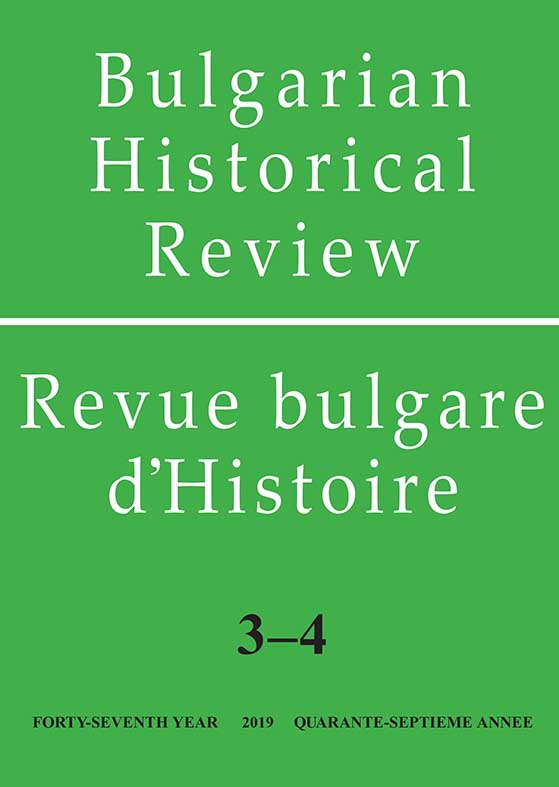On the Role of the Dubrovnik (Ragusan) Consulate Operating in “Sclauonia, Bosna, Sriemo et Burgaria” in the 1380s and 1390s
On the Role of the Dubrovnik (Ragusan) Consulate Operating in “Sclauonia, Bosna, Sriemo et Burgaria” in the 1380s and 1390s
Author(s): Elena KostovaSubject(s): History, Diplomatic history, Economic history, Political history, Middle Ages, 13th to 14th Centuries
Published by: Институт за исторически изследвания - Българска академия на науките
Keywords: Dubrovnik (Ragusa); Balkan Peninsula; Bulgarian lands; Ragusan consuls and judges; Ragusans traders;
Summary/Abstract: The issues related to the status quo of the Ragusan Consuls, fulfilling their obligations in the region of the Balkan Peninsula and in particular – in the Bulgarian lands, are of special research interest. The reason for this is that the activity of these employees actually regulated the relations between the Ragusans traders within the territories where they had direct economic interests. Our study is focused on this range of problems, and is based mainly on written evidence from the 1380s and 1390s. The historical sources outline the authorities but also the obligations of the Ragusan consuls and judges, appointed by the Republic of Dubrovnik in the region of South-East Europe. Specifically in the Balkans, the Ragusan Consulate originally appeared in the territory of Serbia and Bosnia, where the Adriatic servants came into view first. This is chronologically related to the second half of the 13th century. Nearly a century later, the Grand Council (Veliko Viječe) of the Adriatic Republic issued a document dated on 17 December 1387. With this written source the work of the Ragusan Consulate in the Balkans and in particular – in the Bulgarian lands, was officially regulated and confirmed.
Journal: Bulgarian Historical Review / Revue Bulgare d'Histoire
- Issue Year: 2019
- Issue No: 3-4
- Page Range: 24-52
- Page Count: 29
- Language: English
- Content File-PDF

